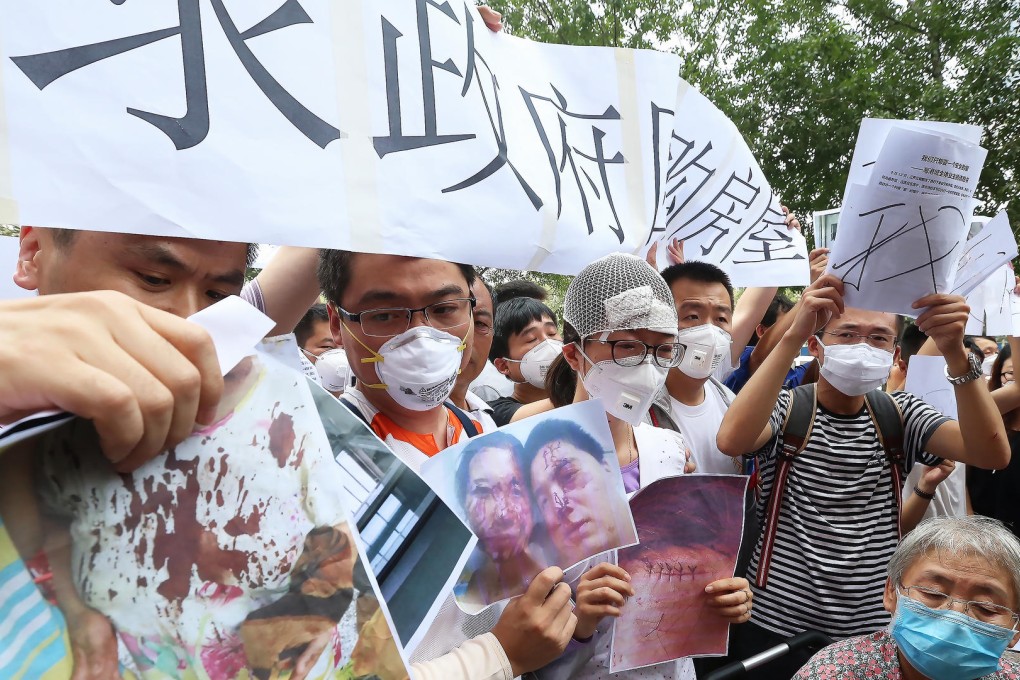From proud homeowner to the front line of protests over flats damaged in Tianjin blasts
Residents whose homes have been damaged are considering lawsuit against warehouse operator and property developers

If it was not for the deadly blast that severely damaged the first flat he bought, Mr Lu, an entrepreneur in his 30s, never would have thought he would be standing among protesters petitioning the government.
"We can't stand this anymore. I have a home but can't go back. I have a three-year-old daughter who was scared to death when the blast happened," said Lu yesterday, outside the venue for the daily press conference on relief efforts. "But the government hasn't helped us at all."
Read More: ‘There’ll be no cover-up over Tianjin blasts’, Communist Party reassures as death toll rises to 114
In 2010, Lu bought his flat at Vanke's Jinyu Lanwan, a European-style residential complex, at a cost of 14,000 yuan (HK$17,000) per square metre.
"In principle, we should negotiate with the developer, but in this case, I don't think they can do anything," said Lu, echoed by others. "The problem here is the loopholes in the government's regulation. Who stamped that government approval?"
In the morning, more than 50 homeowners from four flat complexes near the blast site staged a second round of demonstrations outside the hotel that hosts the press conferences.